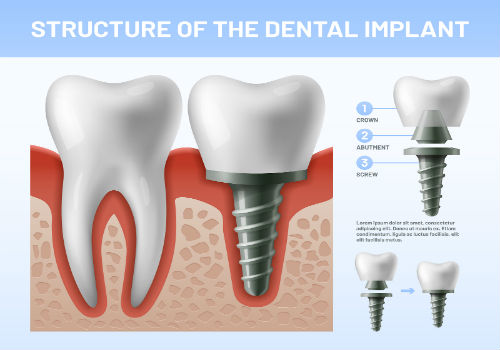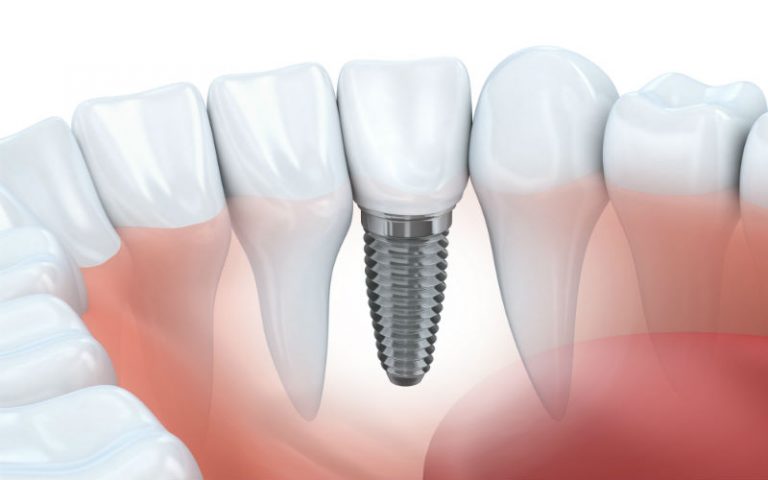
What is a dental implant?
A dental implant is used to help replace a missing tooth. The implant is a titanium post that is surgically placed into the tooth root space. A prosthetic tooth, or crown, is then mounted onto the implant. Implants can be used to replace teeth that have been missing for a long time, or those that have only just been removed, depending on the recommendation of your dentist.
Because the dental implant is secured directly to the jawbone, it is much stronger than many other tooth replacement procedures such as dentures and can be a permanent fix for a missing tooth. Implants may also be preferable to bridgework for some patients, as they do not need to be attached to other teeth.
Types of implants
The American Dental Association has approved two types of dental implant for use in the U.S.:
- Endosteal implants are posts placed into the jawbone through the gum. Once they have fused and healed, crowns are mounted onto the posts. This is the most common type of implant.
- Subperiosteal implants use framework, which is attached to the jaw. The posts are then attached to the frame, and the crowns are mounted afterwards.
Implant costs
Before considering this procedure, most patients will want to familiarize themselves with the average cost of dental implants. There are a number of factors that may affect the cost of your implants.
Consider the following when budgeting for your implant procedure:
- Your insurance, and whether it covers this type of surgery.
- The number of teeth you need replacing.
- Any potential complications or additions to the surgery, such as bone grafts.
- The area in which you live, as some locations have higher dental costs than others.
You might pay as little $1,500 for a single tooth implant, or up to $30,000 for a full mouth of implants. This could be increased further if you require additional surgery.
Ask your dentist about affordable dental implants if you are worried about the expense. He or she may also have an alternative treatment plan to suggest.
It is also important to remember, however, the long-lasting nature of a dental implant. Although they may carry a high initial cost, they should last a lifetime. Paying for a high-quality procedure with an experienced professional may be worth the investment if your dentist recommends implants for you.

What are bite problems?
Bite problems refer to any misalignment of your teeth, causing an unusual bite. This can create strain in your mouth as the teeth, jaw, and surrounding muscles are placed under pressure in an awkward direction.
Bite problems can involve misaligned teeth, crooked teeth, overbites, underbites, and more. This could have been something you were born with, or it could have been caused by an external factor such as gum disease or an injury.
How bite problems might affect an implant
A dental implant is connected directly to your jaw and takes its strength from this connection. It is designed to withstand a great deal of pressure from above, replicating the strength of a natural tooth and root.
However, if you have a bite problem, your teeth may be misaligned. This means the pressure on your implant could come from another direction. Dental implants are not designed to deal with this type of movement or pressure.
Before a dental implant is considered, your dentist will examine the structure of your mouth thoroughly. He or she will determine whether your bite can support an implant.
Eligibility for a dental implant
As well as assessing your bite and tooth structure, your dentist will determine your eligibility for an implant through other means. This includes checking if your jawbone will support the implant and whether you might need a bone graft first.
Those with health issues that could affect the procedure or their ability to heal, such as those taking medication for autoimmune diseases are unsuitable candidates for this procedure.
